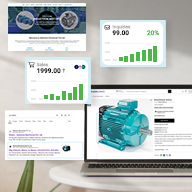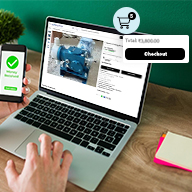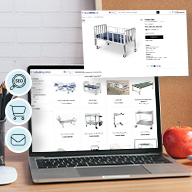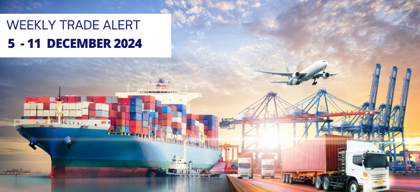To Make Or To Outsource? A Strategic Perspective

Business Development
482 week ago — 7 min read
Often, you’re faced with a decision between making a product or buying it. (Here, buying refers to purchasing a white-labelled finished product or outsourcing its manufacture. This also applies to parts or components required for a product.)
The dilemma arises for two possible reasons:
- Threat of role marginalisation – You may feel that your role may be marginalised or minimised when you outsource
- Threat of losing control over the production process – You may feel that you will lose control over the entire production process, not just the output
In most cases, these threats are imaginary, or at worst, negligible.
The make or buy decision is both important and strategic. It is not a call that can be taken on the spur of the moment, unless the process or the product is not critical.
First, you should decide whether it is worth outsourcing in the first place. The situation or the accompanying circumstances should warrant such a decision.
Some Factors You Should Consider In Favour Of Outsourcing
It is important to weigh the pros and cons of outsourcing. Sometimes the reasons to outsource are compelling. These could include:
- Product requires know how available with a vendor
This suggests that the know-how is not available with you. Rather than reinventing the wheel, and in the interest of speed, you could decide whether to outsource or not. - You don’t have the expertise
This point takes off from the one above. If you don’t have the expertise or would rather not invest time, money and effort in gaining that expertise, you would rather outsource. Outsourcing could also probably help educate you about some of the nuances of producing this product yourself, and also of the intricacies involved. - You don’t have the time
This is an important consideration. When you are short of time and a single component could delay the entire process, it makes sense to decide in favour of outsourcing. - The need is short term
Often, you may get a one-off requirement which is unlikely to come up again. In such a case, you would want to outsource rather than build the core expertise yourself. - High fixed costs
When the fixed costs are high and you do not have a cost advantage, or the profit margins are too low to bear the excess marginal cost, outsourcing may be preferable. - Quantity required is not economical to produce
When the desired quantity is not optimal to manufacture from an Economical Order Quantity (EOQ) perspective, decide to outsource. - Urgency
Very often the need to source a product is governed by urgency. In most such cases, this single consideration takes the highest weightage. Outsourcing may be the best solution. - Low strategic fit
Often the item or part may not be key to your overall strategy and it does not really matter if it is outsourced.
When You Should NOT Outsource
Outsourcing might be tempting in some situations but before deciding to do so, you should take the following into consideration:
- Excess/spare capacity
If you have excess capacity that could be utilised, you may consider producing it in-house so that you get the maximum capacity utilisation. Needless to say, you will allow for some spare capacity for emergencies and spill overs etc. - Direct cost control
When you need to maintain tight control over your product cost, it’s best to make it yourself. - Cost advantage
You might decide against outsourcing when you know you have a cost advantage thanks to a higher bargaining power and/or economies of scale. - Design secrecy
When the design for the product has to be kept a closely guarded secret or when a particular part of the process gives you an advantage over others, you may wish to keep its production in-house. - Vendor uncertainty
Vendors for a particular product may be new to you or you may not sure about their reliability, delivery times, and quality adherence etc. - Better control over quality
This is important, especially if the component that you are considering is critical to the entire process. - Workforce utilisation and motivation
An idle mind is the devil’s workshop. Morale can take a beating when the workforce is on bench. So you may decide not to outsource in spite of cost advantages to keep your workforce occupied and thereby motivated. - High transportation costs
The high cost of transporting a component may offset the cost advantage of procuring it from somewhere else. - Cover fixed costs
Often fixed costs such as plant and machinery are high enough to warrant a decision to manufacture in-house rather than outsource. - Better control over time
Outsourcing might imply less control over deadlines and lead times that in-house production offers. Sequencing of activities will also benefit. However, parallel activities might not be affected if you outsource.
After you’ve weighed the pros and cons of outsourcing and decided to buy, you need to decide on vendor-partner selection. This must necessarily follow a process if the component you plan to outsource is critical to the entire process. This will be taken up in a subsequent article.
Outsourcing does not mean abrogation. The quality and ownership of the end product and therefore the component you have outsourced are still yours. Some suggestions:
- Don’t put all your eggs in one basket
If the order for the component is large enough to be spread over multiple vendors, then consider multiple vendors. But base your decision on all the factors involved, not just one, so that everything works out for the best. - Check the reputation of the vendor
While the component you outsource may be small, its timely delivery may be critical since it dovetails into other sub-components or its quality may be of utmost importance. The only solution is to do your due diligence and maintain some amount of control.
A make or buy decision is often a make or break decision as it could have an impact on cost, quality, deadlines and even your reputation! Draw up a balance sheet of the pros and cons before you decide.
Posted by
GlobalLinker StaffWe are a team of experienced industry professionals committed to sharing our knowledge and skills with small & medium enterprises.
Most read this week
















Comments
Please login or Register to join the discussion